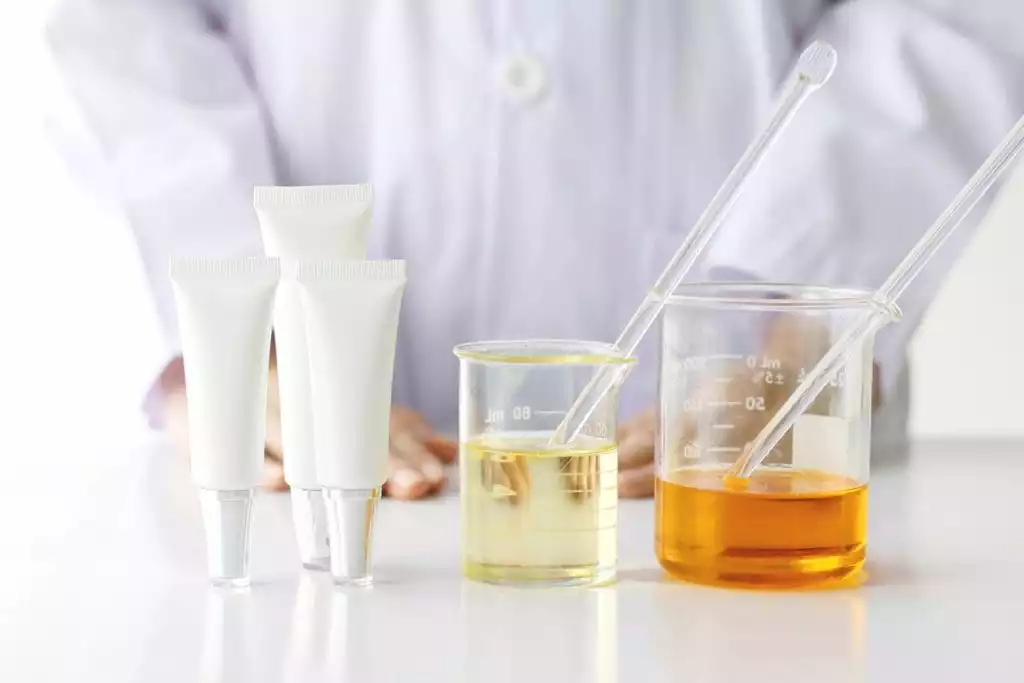
Pharmacies don’t just help patients with drugs; often, we play a vital role in beauty and self-care strategies, especially when it comes to seasonal skin concerns. With summertime just around the corner, skin symptoms are ramping up, including sunburns, windburns, dryness, over-production of oil, and blemishes. Luckily, we’ve put together a list of 7 summer skin care tips to keep your skin healthy, and glowing this summer.
For as much as the sun can heal your skin in small doses, it can also cause serious symptoms and damage in excess, too. Moderation is the key to preventing skin cancers and ensuring your skin looks its best.
But staying out of the sun altogether? That’s neither fair nor fun.
Instead, use these summer skin care tips to get that healthy, glowing skin back without sacrificing your super summer experiences.
1. Sunscreen is Necessary for Summer Skin Care
Prevention is worth a pound of cure, which is exactly why wearing sunscreen is the best tip we can give you for summer skin care.
Anyone six months of age or older should wear a good, high SPF sunscreen (30 SPF or above) if they’re spending time outside.
Sunscreen can’t work unless it’s applied correctly. To ensure you get the most from your sunscreen, apply it at least 30 minutes prior to going outside. Reapply every 45 minutes to an hour, or whenever you encounter water, sand, sweat, or other environmental factors that may reduce its effectiveness.
Keep in mind that if you’re swimming, you may need to reapply your sunscreen more often; even waterproof sunscreens can break down over time.
Have sensitive skin? Ask your pharmacist about special sunscreens made from compounded materials right in the pharmacy. Whether you’re allergic to a certain ingredient or just find your skin becomes irritated with commercial formulas, your pharmacist can help you find a solution.
2. Stay in the Shade
We all love to spend time outside in the sun. A little bit of exposure to sunlight helps us to produce vitamin D, which can improve mood, help us ward off depression, and even enjoy healthier skin. The problem occurs when we spend too much time outside in the sun, experiencing sunburns and even blistering.
Figuring out exactly how much time in the sun is too much isn’t always easy. Every person is different; some people may be more sensitive to the sound than others. As a rule, UVA and UVB rays are strongest between 10 a.m. and 4 p.m.
As a rule of thumb for your summer skin care, you should restrict your time outdoors during these hours whenever possible. If you must go out, be sure to wear sunscreen.
If you are spending time outside during the day, being able to retreat to a shady area is often enough to prevent nasty sunburns. If you going to the beach, bring an umbrella. If you’re sitting beside the pool, situate your chair under an awning. If you’re just relaxing outside, be sure to retreat to the shade at least once or twice an hour to cool down.
Moreover, try your best to be aware when your overheating; if you experience symptoms like redness, irritation, or blistering, it’s a warning sign. You’re spending too much time in the sun.
3. Avoid the Wind
Sun isn’t the only risk to your skin in the summertime; sunny, windy days can worsen irritation, causing chafing, redness, irritation, and sometimes, even cracked, bleeding skin.
High winds are incredibly abrasive, and the effects of exposure are usually cumulative, meaning the longer you’re outside, the worse your symptoms will be.
We see these symptoms often in people who hike, climb, or spend time at high elevations where winds may naturally be higher, but it’s also common for patients who enjoy water sports, such as jet skiing, water skiing, hand gliding, skydiving, and other thrill sports.
Protecting your skin from windburn starts with avoiding high winds in the first place, but it is unreasonable to tell you to stay indoors all summer long.
To reduce your risk for irritation and other symptoms, cover sensitive areas of your face like your nose, lips, and forehead when appropriate.
For the best results of your summer skin care strategy, start by covering sensitive zones with a good sunscreen that contains zinc. Then, moisturize regularly throughout the day.
Take vitamin E to help your skin bounce back after outdoor play sessions.
4. Use Aloe Products
Aloe vera is an amazing plant; it’s entirely natural, yet it has an uncanny ability to help skin heal from damage.
Most experts recommend using it after sunburns, but you can apply aloe vera to your skin at any time for a healthy, nourishing burst of moisture. You don’t necessarily need to buy a product that contains aloe vera, either; if you have a plant at home, you can simply break off a stock, squeeze out the gel, and apply it directly to your skin.
That said, finding summer skin care products that includes aloe vera are often very helpful. This includes cooling gels that soothe after sunburns and rehydrate your skin and moisturizers. Ask your pharmacist which of these formulas may be best for you.
5. Drink Plenty of Water
Here’s the most important summer skin care tip you’ll ever get about healthy, glowing skin: it’s all about hydration.
Hydration influences skin function, including how it looks, how it feels, and how much it “glows.”
If you’re dehydrated, your skin can’t function correctly. It will become dry, cracked, or even develop blemishes and/or a lackluster appearance.
Getting that dewy glow back, regardless of your age, starts with drinking more water regularly throughout the day.
There’s no fixed rule for how much water someone should drink throughout the day; most experts recommend aiming for around eight, 8-ounce glasses of water in a 24-hour period. You may need to drink more if you’re hard at work or playing outside, or less if you’re spending the day inside. Most patients do best if they watch thirst levels and respond to them as needed.
One small hydration warning: Hydration is about more than just fluids, critical electrolytes like potassium, magnesium, and even salt can become off kilter if you’re drinking water alone. Over-indulging in water by itself can cause hyponatremia, a condition where essential electrolytes fall out of balance. Eating a snack every few hours or indulging in the occasional sports drink after hard play sessions reduces your risk.
6. Don’t Over-Wash
In the summer, many patients experience sweating and oily skin. This is a natural reaction to the heat and sun; your body is doing its best to protect your skin from damage. Sadly, most of us don’t see it this way.
Patients often react to increased oil production by washing the skin more often. It seems logical, but it’s rarely the right move; over-washing puts intense stress on the skin and can confuse your body.
As you wash away the oil, your body mistakes it for dry skin, producing even more oil. This increased production begins to clog pores, leading to blemishes, pimples, irritation, and chafing, especially if you’re using harsh soaps. Most of us compensate by washing even more often…and the cycle continues.
Of course, no one really likes walking around with oily, dirty skin; not washing at all isn’t the right choice, either. The answer is to wash one to two times per day using gentle foaming cleansers or plain water alone. If you find yourself struggling, use blotter pads or a clean, soft sponge to wick away sweat and oil.
7. Repair Damage with Compounded Topicals
Is your skin already damaged by the sun? Whether you’re struggling with localized symptoms from recent exposure, or you have chronic skin issues due to years of exposure to the sun, there are ways to soothe your skin and repair damage.
Highly-targeted compounded cosmeceuticals, including antioxidant moisturizers and irritation-reducing steroid creams, can reduce signs of skin damage and aging when applied regularly. These blends treat skin locally, smoothing, toning, and plumping for a more youthful look.
Compounded cosmeceuticals aren’t like commercial blends; instead, your pharmacist creates a skin care regime them by hand just for you in the pharmacy to match your exact skin type and symptoms.
Because they’re better targeted to individual patients, they often produce better results, too. If you’re curious, reach out to your pharmacist to learn more about how cosmeceuticals can help.
Creating a summer skin care regime doesn’t have to be difficult. With these 7 tips, you can have beautiful glowing skin all summer long.

 info@burtsrx.com
info@burtsrx.com


Truly mind blowing article.. All of the points are super important for best skin care!!! Right diet is real important.. along with regular moisturizing and exfoliating. Good work.
Aloe vera is my best friend during summer time.
I was not aware that you must apply your sunscreen at least 30 minutes before you go outside to ensure proper skin care. My husband has been struggling with sunburns, and we are looking for advice to prevent a bigger problem. I will let him know about your recommendations on how to apply sunscreen to help him.
Sunburn is very common during the summer months and suitable precautionary measures should be taken into consideration to protect the skin from harmful solar radiation. Besides, a lot of other aspects should be taken into consideration to keep the skin healthier during the summer months. Vitamin-C plays a crucial role in the development of the skin and helps to heal the damages done to it. So, the source of v-C should be added to the regular diet.
We agree, Annie! Thank you!